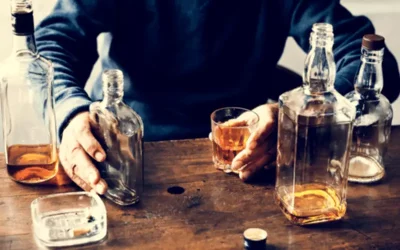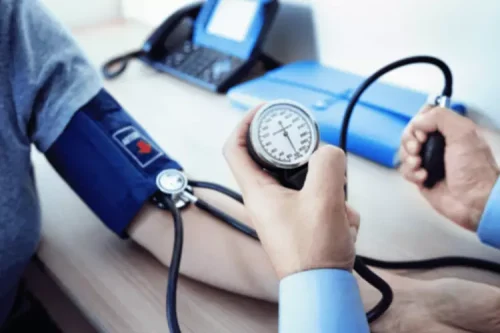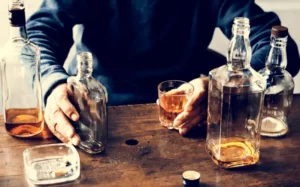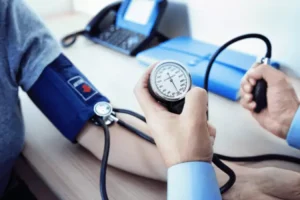
Being in any one of the HALT states reduces a person’s ability to cope with stress and increases impulsivity. Avoid going into situations alone where you are at high risk of relapse. You might be surprised how quickly your resolve and good intentions disappear once the party’s started. Try to focus on the =https://ecosoberhouse.com/ new life you’re building and the changes you’re making. Think about the negative consequences that you experienced while participating in your addiction—the people you hurt and the relationships you lost.

Top 10 Common Relapse Triggers

Stress is a part of daily life for most people, whether it’s being late to work in the morning or tense relations with a loved one. Health problems, increased responsibility and other events can result in stress that triggers drug cravings. By creating a plan, individuals can identify their triggers and cravings, and develop strategies to manage them. They can also build up their coping skills to help them better handle difficult situations. Finally, they can reduce their risk of relapse by understanding their triggers and cravings and having a plan in place. Addiction often develops because people use drugs or alcohol to feel better about their current situation.
Negative Feelings
- Addiction happens because the use of drugs or alcohol makes a person feel better in some way.
- Treatment for addiction can help clients work through a relapse and begin taking active steps to change their behavior.
- These emotions may arise during the recovery process, and it is important to have healthy coping mechanisms in place to deal with them.
- A person with diabetes will often relapse due to poor eating behaviors, for example.
- Because everyday life contains many triggers, relapse is common among people trying to get over their disorder.
Other than joining therapy groups and treatment programs, accessing relapse prevention workbooks can help immensely. If the temptation to use again becomes too overwhelming, don’t hesitate to seek professional help. Certified addiction specialists can guide your recovery and relapse prevention journey. Support groups also let participants collectively learn from substance abuse group topics.
- The holiday season is meant to be a time of joy, connection, and celebration.
- Remember, reaching out for help and support is vital if you ever feel overwhelmed or struggling.
- It’s key to remember that these are not failures and shouldn’t be termed as such.
- This therapeutic fact of giving a new meaning to the trigger does not exclude the traditional therapeutic avoiding of the trigger, which is an urgent aim at the beginning of the treatment.
Create an Action Plan

It is important to continue working on one’s recovery and not become complacent. Calls to numbers marked with (I) symbols will be answered or returned by one of the treatment providers listed in our Terms and Conditions, each of which is a paid advertiser. The final stage is succumbing to temptation and engaging in drug what is alcoholism or alcohol use again.
- Another form of relapse is a “lapse.” A person lapsing may have one or two drinks then return to sobriety.
- The acronym “HALT” stands for Hungry, Angry, Lonely, and Tired—four common conditions that can trigger a relapse.
- Mindfulness, exercise, and talking to a therapist or support group are all great ways to help manage stress in a healthy way.
- By being aware of your triggers and taking conscious actions to limit your exposure, you can stay on the path of recovery.
- A positive view of all the perceived good times they had can be a dangerous trigger that plants the idea of using again in their mind.
Understanding Relapse Triggers

The last stage of relapse is the one most people think of first — returning to the use of drugs or alcohol. It’s not just negative events that can result in addiction relapse triggers. Getting a new job or earning a promotion can trigger a relapse in a couple of different ways. For one, you might be tempted to use again “just this once” as a means of celebrating. Recovery is a journey with no end, yet some people begin to feel that they are cured and don’t have to worry about triggers anymore. It’s important to develop a healthy level of self-confidence, but humility is necessary too.
One way to prevent stress from triggering you is to evaluate your stress levels. Although you can’t eliminate everything and everyone from your life, you can avoid situations that cause you extreme stress. As a types of relapse triggers result, it may help to list all the people, places, and things that cause you excessive stress.
- A supportive environment is a valuable asset for anyone on the journey to sobriety.
- A person’s support system may also play an important role in recovery and the avoidance of relapse.
- A study from Marquette University pointed out that stress rendered people in recovery more vulnerable to other relapse triggers.
- As a result, it may help to list all the people, places, and things that cause you excessive stress.
- During therapy for people experiencing emotional relapse, patients are encouraged to identify their denial and focus on self-care.